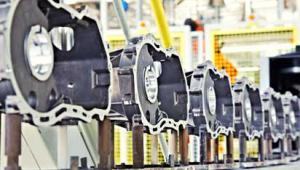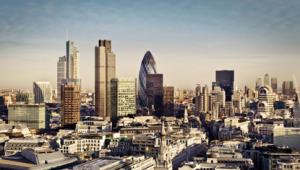Gross domestic product grew by 0.6% in the second quarter of 2016, covering the months from April to June. This was up from growth of 0.4% in the first three months of the year, despite the Brexit vote being held on 23 June.
Output increased in two of the main industrial groupings – production and services – within the economy in the three-month period, according to today’s preliminary estimate.
Overall, GDP is around 2.2% higher than in the second quarter of 2015, and the economy is now 7.7% larger than the peak set before the economic downturn, which was in the first three months of 2008.
Sam Alderson, an economist with the Centre for Economics and Business Research, said the preliminary estimate showed a notable bounce back in growth.
“In the wake of economic uncertainty surrounding the UK’s referendum on EU membership on 23 June, the pick-up in growth over the second quarter of 2016 highlights the strong momentum that had built up in the UK’s economic recovery.
“Whilst we do not yet have a picture of the drivers of growth in quarter two, it is likely that the continued robust growth in household spending power once again provided a strong foundation for demand across the UK economy. Similarly, the falls in the value of sterling that were seen in the run-up to the referendum and a slight strengthening of growth in Europe are likely to have been key factors that helped to lift the gloom that had been surrounding the UK’s manufacturing sector in recent quarters.”
However, he added it would be wrong to minimise the challenges that the UK economy faces over the course of the next 18 months following the ‘leave’ vote.
“Whilst the weaker pound and the return of some of the business investment that was delayed in the run-up to the referendum could act to support economic activity in the near term, rising inflation and declining confidence will begin to weigh on the growth in consumer spending seen since the beginning of 2015.
“As such, we expect economic momentum to notably slide in 2017, with annual GDP growth forecast to drop to its lowest level since 2009.”




















